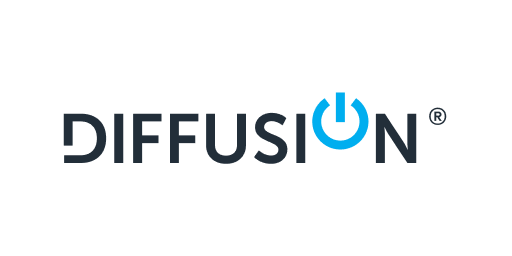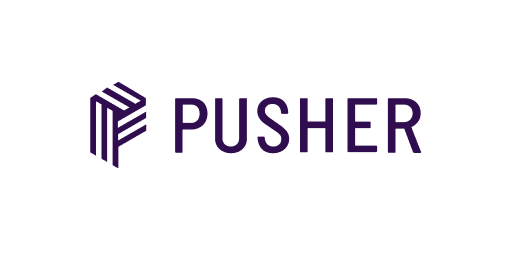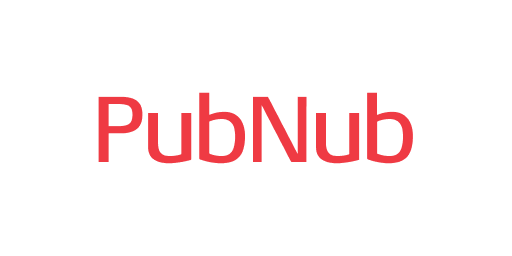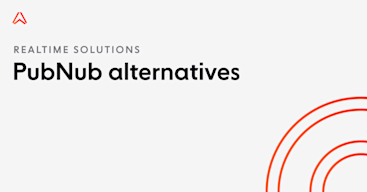- Topics
- /
- Realtime technologies
- /
- Diffusion Cloud (formerly Push Technology) alternatives to consider in 2024
Diffusion Cloud (Push Technology) alternatives to consider in 2024
Diffusion Cloud overview
Diffusion Cloud is a Publish/Subscribe (Pub/Sub) data platform. Acting as a message broker, Diffusion Cloud accepts inputs from multiple data sources, transforming and distributing data according to criteria such as topic and metadata.

If you’re considering Diffusion Cloud to help you consume, transform, and distribute data, it’s worth taking a few moments to look at:
What Diffusion Cloud does well.
Diffusion Cloud’s limitations.
The most compelling Diffusion Cloud alternatives.
Diffusion Cloud advantages
As a realtime data transformation and distribution platform, Diffusion Cloud is a core part of the infrastructure of those companies where it is deployed. So, what makes it a good choice for such an important role?
In-flight data processing: Data from different sources can be combined, altered, and removed depending on its contents or its destination.
Low-code approach: Diffusion Cloud offers domain specific languages for configuring how the platform transforms and distributes data.
Adapters for different data sources: The platform can consume data for Kafka, MQTT, REST, and other sources.
Diffusion Cloud disadvantages
Although there are upsides to working with Diffusion Cloud, there are some potential downfalls to look out for.
Poor SDK coverage: Diffusion Cloud offers SDKs only for a small number of languages, such as Java and .NET, making it less suitable for applications built in other common languages. Similarly, not every SDK offers complete access to the platform’s functionality.
Documentation is limited: Diffusion Cloud’s “user manual” and small number of tutorials might leave questions unanswered for developers looking to work with the platform.
No free tier: It’s harder to learn the platform or launch a proof of concept project as the only way to access Diffusion Cloud is with a paid account.
5 alternatives to Diffusion Cloud
Diffusion Cloud is just one of many ways that you can move and transform data. Depending on your application’s needs, you might find that another solution is more suitable. Here are five of the most popular alternatives to Diffusion Cloud:
SocketIO
SignalR
Pusher
PubNub
Ably
Socket.IO
Unlike Diffusion Cloud, Socket.IO is not a hosted service. Instead, it is an open source library based on the WebSocket protocol. It improves on some aspects of WebSocket by providing automatic reconnects and graceful fallback to long polling, for example.

Socket.IO advantages
Greater flexibility: Socket.IO is an open source library, meaning that you can build it into your application in whatever way makes sense for your use case.
No licensing fees: Being open source also means that you’ll need to self-host Socket.IO, with the advantage that you’ll save on licensing and other fees.
Efficient use of resources: Socket.IO’s namespaces mean you can pack multiple topics into a single connection. That reduces the overhead of adding new topics.
Socket.IO disadvantages
Delivery guarantees not suited to all situations: Socket.IO can’t guarantee exactly-once delivery. Instead, it offers at-most-once and at-least-once delivery. If you need exactly-once delivery, you’ll have to build additional infrastructure to track each message’s status.
Official support is limited: Without a commercial backer, there isn’t a single Socket.IO organization that can offer paid support. Instead, you’ll need to look to the community.
Single region: Socket.IO doesn’t support multi-region deployments, which makes it harder to offer performance and stability guarantees.
SignalR
SignalR is an open source library for .NET applications that enables sending notifications to web clients. Built on top of WebSocket and RPC, SignalR exists mostly as an open source library for ASP.NET Core and also as an Azure managed service.

SignalR advantages
Graceful fallback: Where WebSocket is unavailable, SignalR will still attempt to maintain communication using either Server-Sent Events or HTTP long polling.
Integrates with your choice of data backend: If using the open source version of SignalR, you can choose from Redis, SQL Server, and Azure Service Bus when looking to scale out.
Integrates well with other .NET components: If you’re already working with .NET, SignalR offers support for common .NET paradigms and tooling.
SignalR disadvantages
Weak quality of service (QoS) guarantees: Unlike other options, SignalR does not guarantee that your messages will be delivered in order or even delivered at all. If that is important to your use case, you’ll need to build your own QoS mechanism or look elsewhere.
Limited client SDK support: SignalR offers SDKs for C#, as well as Java, Python, and JavaScript. However, if you’re working with iOS, Android, Python, or Ruby, then you won’t find an SDK for those platforms.
Single region: Scaling to multiple data centers in different regions is a key way of delivering performance and stability. SignalR is designed to work in a single region, which could impact availability.
Pusher
Pusher is a platform as a service (PaaS) for sending realtime messages between application components, as well as clients and servers. Now part of MessageBird, Pusher primarily uses WebSocket to offer functionality such as Pub/Sub messaging, notifications, and presence.

Pusher advantages
Mix of protocols: Pusher defaults to WebSockets but will fall back to other technologies where WebSocket is unavailable.
Good choice of SDKs: With both official and community supported SDKs, there are client libraries for most major programming languages.
Choice of messaging patterns: As well as Pub/Sub, Pusher supports one-to-one, one-to-many (fan-out), and many-to-many messaging.
Pusher disadvantages
Message delivery is not guaranteed: Unlike Ably, for example, Pusher does not guarantee that messages will be delivered. You’ll need to build your own QoS infrastructure to deliver a reliable service.
Limited features: Pusher focuses on the basics, meaning it lacks functionality such as message history or message delta compression. Similarly, there are no officially supported integrations for common systems such as Apache Kafka.
Relies on a single data center: Pusher requires that all realtime traffic route through a single data center. That leads to reduced service for users who are far from the data center and introduces a single point of failure.
PubNub
PubNub is a messaging PaaS that uses Pub/Sub to offer a scalable and flexible realtime platform. With several edge locations, PubNub has better global reach than some of the other options considered here, delivering a high number of messages each month.

PubNub advantages
Good choice of SDKs: PubNub offers SDKs for all major languages and frameworks, as well as some more niche options such as Dart and Unity.
Global infrastructure: PubNub’s 15 edge locations help it to serve end users across the world.
Standards compliant: With end to end encryption, and compliance with standards such as HIPAA and SOC2, PubNub can be deployed in environments that require higher level of data security and scrutiny.
PubNub disadvantages
Weak guarantees: PubNub does not guarantee message delivery nor message ordering. Crucially, PubNub’s default message queue can handle only 100 messages. Send more than 100 messages to an offline subscriber and they will lose older messages.
Outdated technology: PubNub is built on top of long polling, which is resource inefficient and slow compared to more modern protocols such as WebSocket.
Doesn’t integrate with streaming data tools: PubNub doesn’t offer integrations to send data to Apache Kafka or Amazon Kinesis, reducing its suitability where those tools are already in use.
Ably, the scalable alternative to Diffusion Cloud
Ably is a realtime experience infrastructure provider. Our realtime APIs and SDKs help developers power multiplayer collaboration, chat, data synchronization, data broadcast, notifications, and realtime location tracking at internet scale, without having to worry about managing and scaling messy realtime infrastructure.

Ably key features and capabilities
With a globally distributed, multi-region network, we offer unrivaled performance, data integrity, reliability, and scaling guarantees:
<50 ms median latency.
Messages are guaranteed to be delivered in order and exactly-once delivery, even in unstable network conditions.
Our global edge network delivers unrivaled redundancy at regional and global levels, with a five nines uptime SLA.
Enormous scalability means you can send billions of messages to millions of channels and end users.
Our developer experience is focused on bringing your product to market quickly. In particular, you’ll find it easy to integrate Ably with your existing tooling, systems, and preferred languages. Choose from SDKs for languages and frameworks as diverse as PHP, Flutter, Clojure, tvOS, and NodeJS and integrate with cloud platforms, data streaming tools, and provisioning tools. We made Ably to serve real world use cases while giving you the freedom you need to build in your way.
Ably can bring your application to a global audience, with strong guarantees, and the scale to serve millions of users. Try it free by signing up for an Ably developer account.
To discover what Ably can do for you and your use case, sign up for a free account and get the ball rolling in minutes with our quickstart guide.
